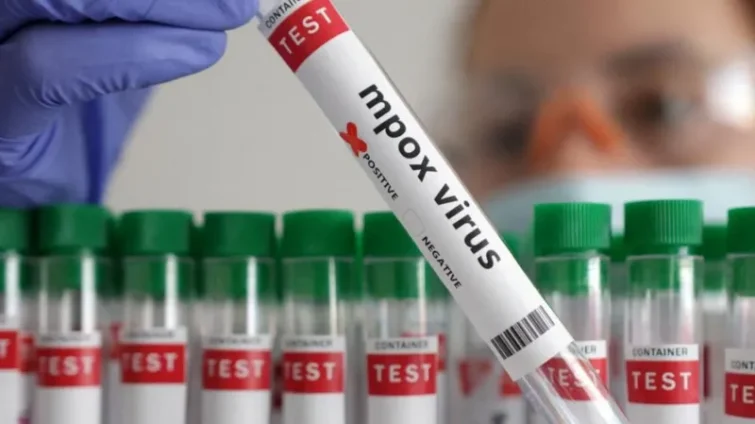The World Health Organization (WHO) has approved the first diagnostic test for mpox where the results can be immediately known, saying it could prove pivotal in helping to stop the rising global cases of the deadly virus.
The new PCR test enables the detection of the mpox DNA taken from skin lesion swabs.
Currently, samples have to be sent to a laboratory for testing and the patient and medics have to wait days for the result.
Limited testing capacity and delays in confirming cases continue to be a challenge in Africa - worsening the spread of mpox that was previously known as monkeypox.
Of the more than 30,000 suspected cases reported in Africa this year, barely 40% had been confirmed through a test, the WHO said.
Yukiko Nakatani, the WHO's assistant director-general, described the new diagnostic test as "a significant milestone".
“Increasing access to quality-assured medical products is central to our efforts in assisting countries to contain the spread of the virus and protect their people, especially in underserved regions," she added.
The breakthrough comes as the Democratic Republic of the Congo, where the highest number of cases has been reported, prepares to begin an mpox vaccination programme on Saturday.
Mpox, which is a highly contagious disease, has killed at least 635 people in that country this year.
In August, the outbreak of the virus was declared a global public health emergency by the WHO for the second time in two years, following rising cases in DR Congo and its spread to neighbouring Burundi, Uganda and Rwanda.
Some Western countries have donated doses of mpox vaccines to combat the outbreak of the disease in Africa but reports say more are urgently needed.
Rwanda, which was the first to administer mpox vaccines in Africa last month, is set to receive 5,000 more doses on Friday, according to the Africa Centres for Disease Control and Prevention (Africa CDC).
In Nigeria, a vaccination drive against the virus is set to be rolled out next Tuesday, the Africa CDC said.
Frontline healthcare workers and close contacts of infected patients are set to be given priority in DR Congo, which has 200,000 vaccines donated by the European Commission, it said.
Latest Stories
-
Kwame Yesu’s latest project blends raw emotion with rap precision
19 minutes -
Mobile Money robbery suspect remanded into police custody
1 hour -
BIDEC and Ghana Dance Association engages Ghana Tourism Authority on dance tourism
1 hour -
Ghana pushes forward with National AI policy through multi-stakeholder engagement
2 hours -
Mahama pays tribute to late Pope Francis
2 hours -
W/R police clamp down on crime: Suspects arrested for vehicle theft, gold robbery, galamsey
2 hours -
This Saturday on Newsfile: Chief Justice suspension and galamsey take centre stage
2 hours -
GIMPA GRASAG inaugurates study rooms, business centre to support academic work
2 hours -
Be circumspect with selection of new investors for Damang Mine – ACEP to government
2 hours -
Chieftaincy Institution in Ghana at a Crossroads – A Perspective by Andrews Kofi Anokye (KOANS)
4 hours -
Offinso highway robbery: Police mount hunt for killers of bus conductor
4 hours -
‘We will fish him out’ – DCOP Teye-Cudjoe vows to arrest soldier behind Nyinahin shooting
4 hours -
Traditional leaders laud AngloGold Ashanti’s youth dev’t initiatives in Obuasi
4 hours -
Cyra Pamela Koranteng resigns as Judicial Secretary, deputy elevated
4 hours -
Benjamin Arthur hands over as Chief Executive of Fair Wages
4 hours

